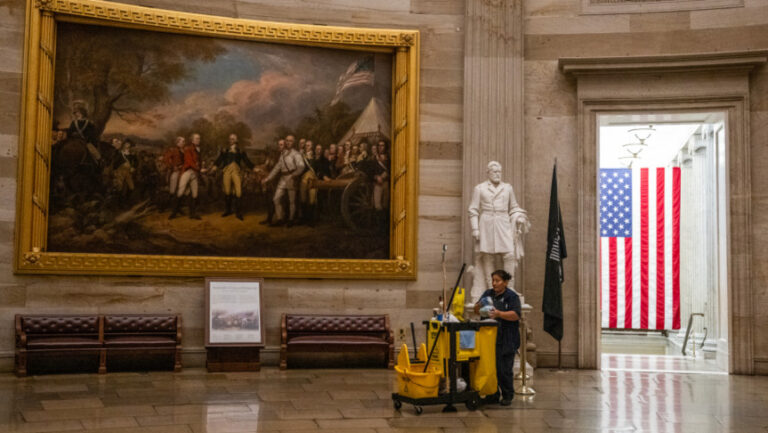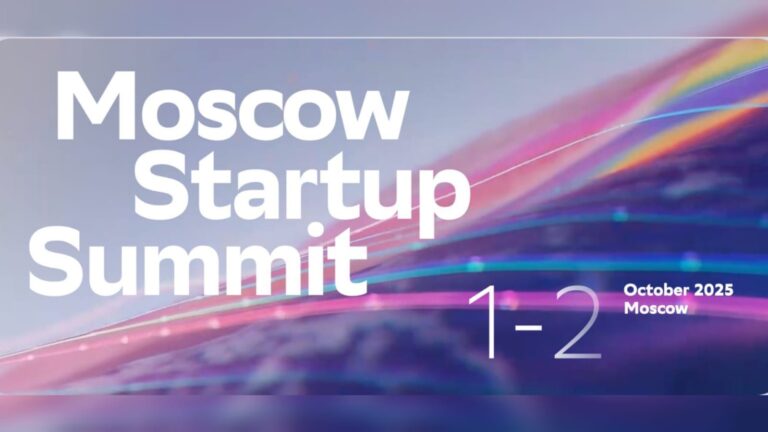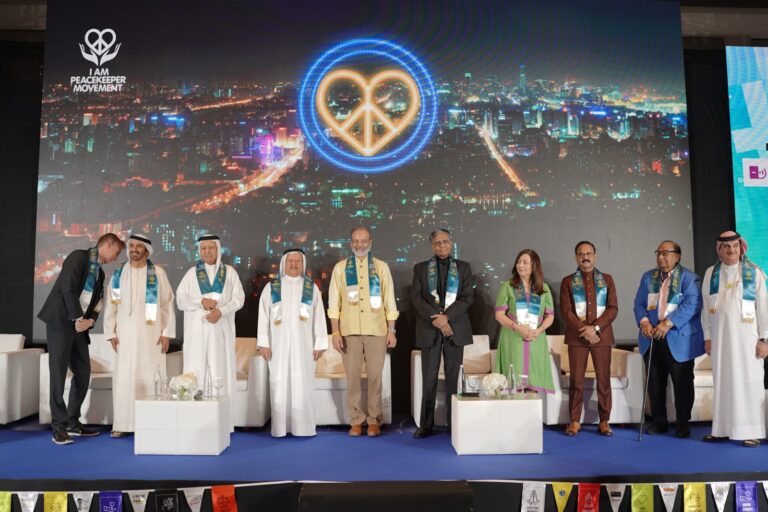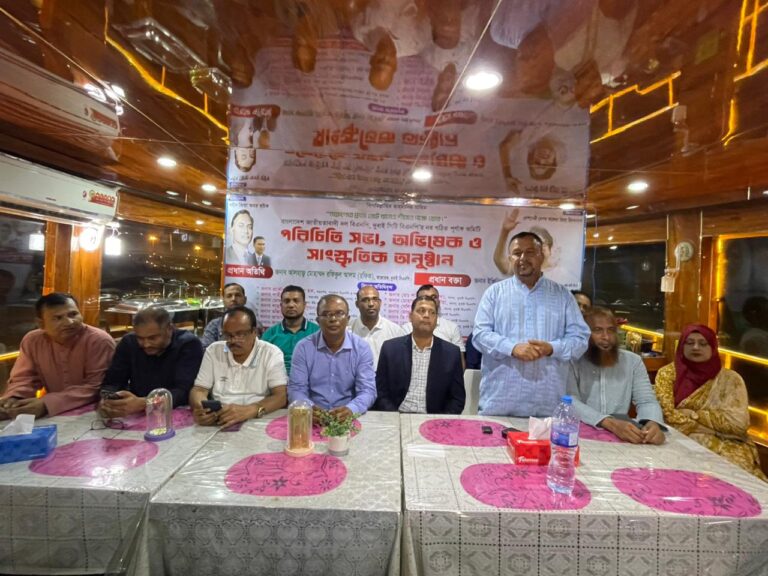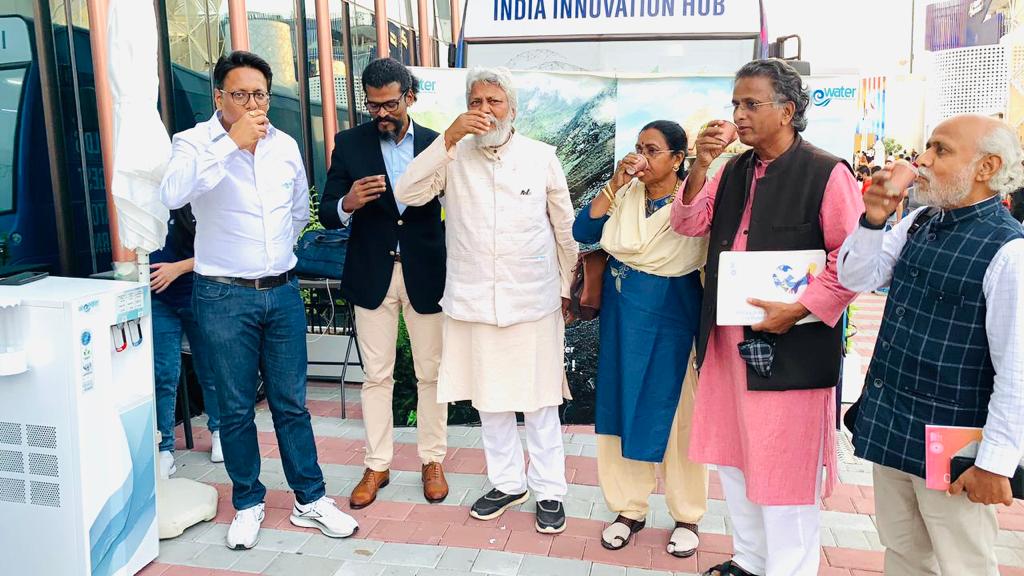
More than 663 million people in the world do not have access to clean water and over 2.7 billion people face water shortages for at least one month out of the year, according to the latest statistics.
The more alarming news is that fresh water sources account for less than 3 percent of the world’s water supply, and the majority of earth’s naturally occurring, fresh water is in glaciers — inaccessible to be used for consumption. Water usage has increased at twice the rate as that of the world’s population growth.
At the current rate, nearly two-thirds of the world could face water shortages by 2025.
“While substantial progress has been made in increasing access to clean drinking water and sanitation, billions of people—mostly in rural areas—still lack these basic services. Worldwide, one in three people do not have access to safe drinking water, two out of five people do not have a basic hand-washing facility with soap and water,” said a report by the United Nations.
“Around 40 per cent shortfall in freshwater resources by 2030 coupled with a rising world population has the world careening towards a global water crisis.”
In much of the developing world, clean water is a commodity that requires substantial funding, transportation and physical labour to distribute water. Women around the world spend a total of 200 million hours a day traveling to collect water, taking time away from their economic activities and families, according to various research reports. The average woman in rural Africa walks 6 kilometers every day to haul 40 pounds of water!
Though there is sufficient water on the planet to meet the needs of the world population, water distribution, usage, climate and pollution limit the amount of consumable water available from region to region, causing water stress or scarcity.
When there is insufficient water supply for irrigation, certain crops and products can become scarce, causing food shortages in already strained regions. Just 2.5 percent of the world’s water is freshwater, and only 0.007 percent of all water is both fresh and available for use.
Every day, more than 800 children under 5, die from diarrhea caused by contaminated water, poor sanitation, and unsafe hygiene practices. One of the United Nations’ Sustainable Development Goals aims to provide universal access to clean water and sanitation by 2030.
Something has to change and Change is the only constant.
Globally, various alternative technologies are being developed by various government, public and private organisations to find a solution to the global water shortage and gain access to clean drinking water availability – such as desalination, fog catcher, rain water harvesting, wind and solar powered water filtration etc.
One of the sources being ‘Water Vapor in the Air’ is such a huge source that is readily available – that can produce water. Although, the knowledge to produce water from air has been there for a while, to produce scalable quantity with minimum costs remains a challenge.
AirOWater, a private company has developed an Atmospheric Water Generator (AWG) using Air2Water patented technology that produces scalable quantities of water from air vapour economically – that is commercially affordable, cheaper than the bottled water and sustainable as a business – has been installing AWGs across India and various other countries.
For every 100,000 one-litre plastic bottles a consumer eliminates, he saves 5,844 kilogrammes of plastic waste, 17,532 kilogrammes of Carbon Emissions, 104 barrels of oil and 300,000 litres used in the manufacturing process!
As Dubai Expo 2020 celebrates Water Week, AirOWater brings its AWGs to the consumers in UAE through India Innovation Hub at the Indian Pavilion where thousands of visitors have been able to witness this technology of water produced out of air!
“Sourcing of water from air has been there for ages. However, the biggest challenge has been to reduce the cost of production of water so that water remains affordable, high quality and energy efficient. We were able to balance all of the above objectives,” Mr Rahul Mathur, CEO International Operations at AirOWater, said.
“Cost of air-to-water has been brought down to as low as 60 percent of the bottled water price and customers can achieve return on investment in 2+ years. They can then enjoy cheaper water for the rest of the life of the product, which is 5-7 years.
“Our fight is against single use plastics and we are aligned with the initiative taken by Dubai Government along with various other private organisations to reduce plastic usage. This technology has the potential to disrupt the traditional ‘mineral bottled water’ and drastically reduce the use of plastic bottles and reduce carbon footprint in the coming years.
“However, this is not a one-decade journey and we at AirOWater are making continuous and significant research and development efforts in technology that not only enhances the ability to produce better quality water and energy efficiency but also transparency to ultimate consumers by adding the Internet of Things (IoT),” Mr Rahul Mathur said.
“We are making continuous effort to create a global awareness among consumers and businesses to make sure that people are aware of this technology and help them make the right choice. I will urge all the other organisations in similar technology to come together in bridging this knowledge gap and create awareness.
“As we all celebrate the Water Week at Expo 2020, It’s been an exhilarating experience at India Innovation Hub at the Indian Pavilion at the Dubai Expo 2020 since its beginning in last October as we have been visited by not only hundreds of nationalities and social visitors but also by various national delegates, diplomats and businesses. This has been a wonderful platform for knowledge sharing of various technologies including water and possible collaborations with other countries to work together on finding a common solution.”
“We along with various other young organizations are thankful to the Indian Pavilion and Expo 2020 for providing such a global platform and for Connecting Minds.”
How does it work?
AirOWater is a humidity and temperature driven machine, which creates water from the air, using a proprietary process. These machines serve two purposes: creating water and filtering outside air simultaneously, making it the unique energy efficient water generator.
AirOWater utilises the moisture content in the air to create the purest form of drinking water through a patented 4-step filtration process. The machine’s optimum performance ideally requires a 60-70% humidity level. AirOWater is designed to produce sufficient amounts of water in harsh humid conditions. It also performs well in an air-conditioned environment, acting as an effective dehumidifier.
Air is purified using a 4-step filtration process that includes an anti-static air filter, a water-dust filter, a pre-carbon filter, a sediment filter, ozone filter, an RO membrane and TCR filter.
Once the water is retrieved from the environment via the air and micro dust form filter, it is passed through an advanced water filter to remove bad odours, physical impurities and colour. Once that is done, a TCR filter, made of activated carbon filter made by mixing coconut shell with silver paste, designed to kill bacteria, remove odours from purified water to enhancing the taste of the final product, setting it apart from the water produced by other water filters available in the market!
The technology, which has been there for some time, has been perfected by companies through massive research and development programme, with enrichment in water quality and reduction in price. Barring the electricity cost and the price of the machine, the water is freely produced. Indian manufacturer of AirOWater has been producing water from air since 2011 and has installed several in India.
Rahul Mathur says, “We have spent lots of resources to perfect the technology and have achieved a price point per litre of water, down from high price per litre when we started production initially in 2011. The water produced through the machine is pure, enriched through ozonisation process with oxidents and healthy minerals – which is 3000 times better than putting chlorine in the water.
“One of the most important aspects is that there is no use of plastic in the process. The whole machine is built with metal and the water container is pure stainless steel. So, the water remains pure with all the healthy ingredients. We have capacity ranging from 25-1000 litres per day. The 25-litre machine is good for home and small office use, with no maintenance cost, except for the replacement of filters and consumables once a year that are supported by the manufacturers.”
AirOWater uses condensation process similar to other companies producing through similar process at a time as the world grapples with water scarcity that has reached a critical level with increased demand for clean water due to growing population. However, the success of AirOWater has been keeping the costs lower than others.

